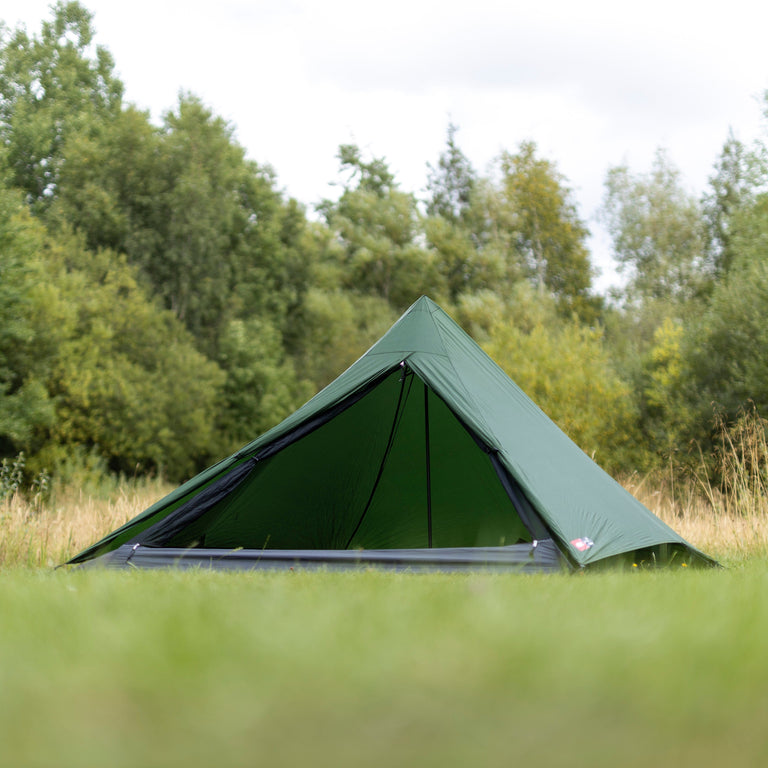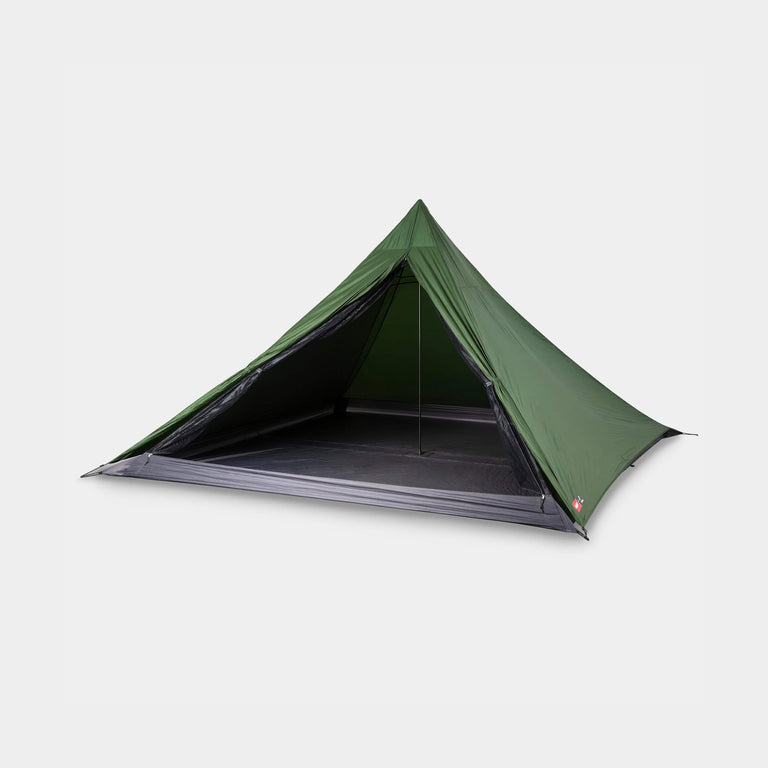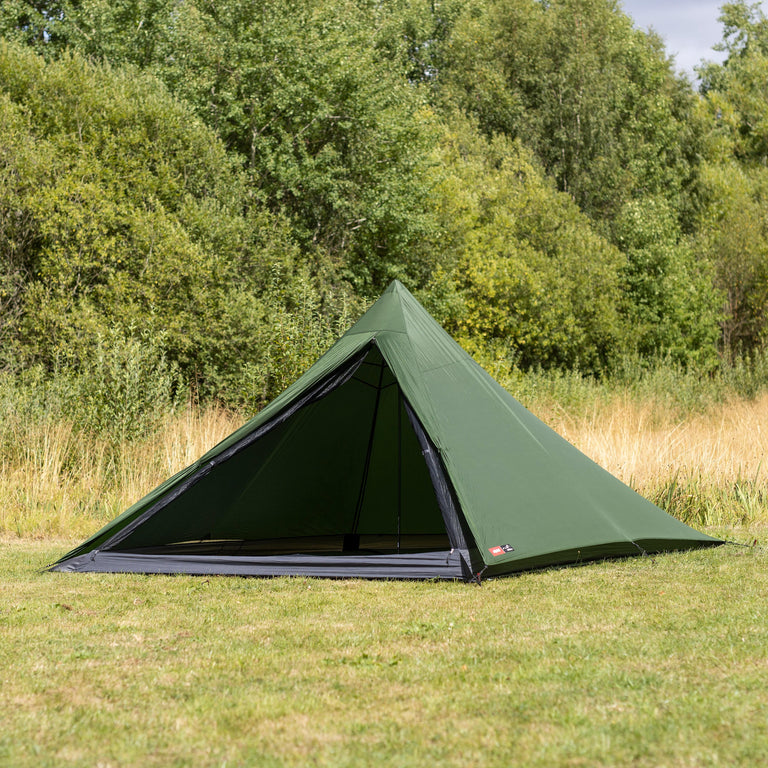
We have eliminated the use of fire retardants In our tents and continually work to remove harmful chemical in all our camping products
Most of us go camping to enjoy special moments in nature. Summer sunsets, fresh mornings and birdsong, crawling into a cosy tent on a cold snowy winter night. And few appreciate that the tent itself may cause harm. Some tents are treated with fire retardants to slow the spread of fire, however, the reality is that there is a growing body of knowledge showing that fire retardants in tents cause harm due to the toxic chemicals used. Alpkit tents are deliberately chosen to be toxin-free. In this article you'll find out:
A Brief Overview
- What is the effect of toxic chemicals when camping?
- Are tents flammable?
- What do I do if my tent has a fire retardant?
What is the effect of toxic chemicals when camping?
You can inhale nasty chemicals (organophosphates) during pitching, use and takedown of a tent. These are the toxic chemicals applied as a fire retardant on tents. They can cause headaches, dizziness, nausea, seizures, slow pulse, difficulty breathing, and even coma.
Are tents flammable?
There is no such thing as a fireproof tent. All tents exposed to an open flame will burn whether they've been treated with a fire retardant or not. That's why we've been fire-retardant free for eight years. To be responsible, we advise you never use a naked flame inside a tent. And pitch a tent an appropriate distance away from your campfire.
What do I do if my tent has a flame retardant?
If your tent has a flame-retardant, you can reduce the risks.
- Washing your hands after set-up and takedown
- Keep vent systems open so there is free-flowing air
- Leave the flysheet off to increase ventilation where possible
- Do not use open flames inside the tent
Related guides
- How to choose the best tent - our complete tent buying guide
- Canvas bell tents - naturally safer materials for camping
- Tent care instructions - keeping your tent in top condition























